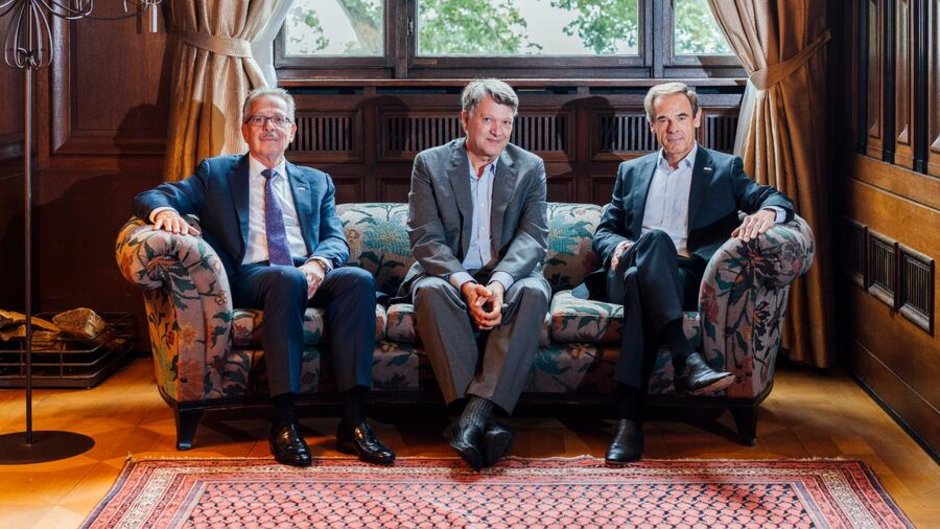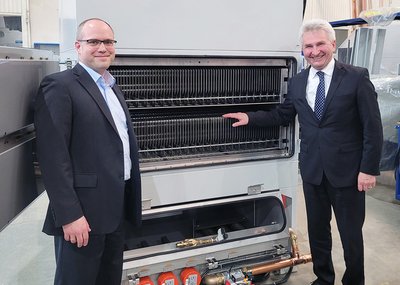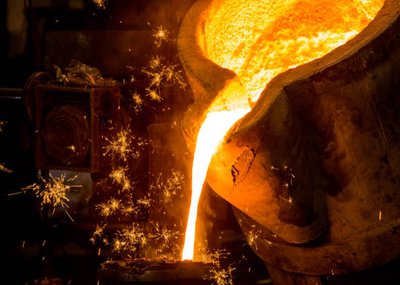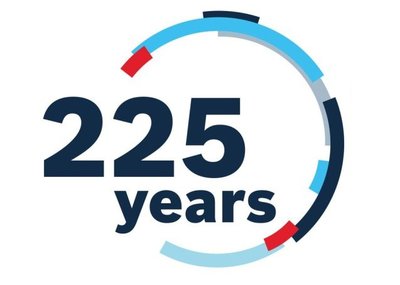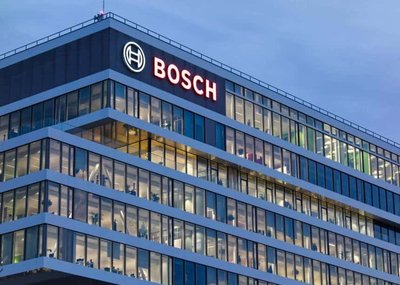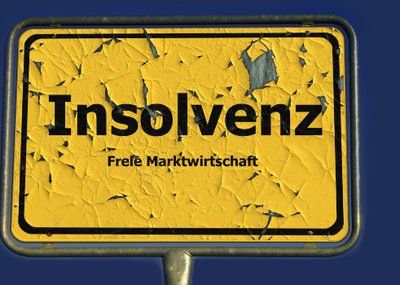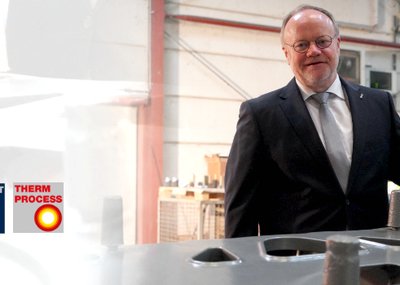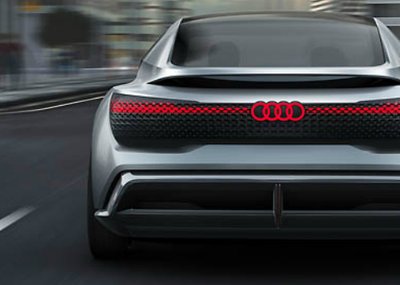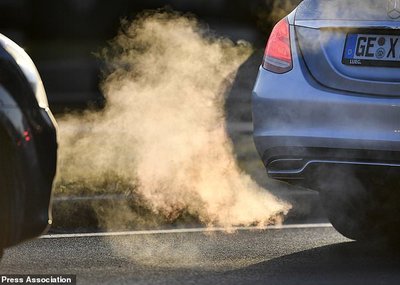Christof Bosch, spokesman for the eponymous industrialist family, has admitted that the entanglement of the group in the diesel affair was a "very dramatic and painful affair" for the family. "There was probably no one who was not surprised by the extent. The family is no exception," said the grandson of the founder in an interview with Handelsblatt.
Bosch has come away with penalties of about 500 million euros, small compared to the fines of the auto companies. As a result, the world's largest automotive supplier, with 78.5 billion euros in turnover, has had to readjust its compliance rules significantly.
Chairman of the Management Board Volkmar Denner referred to the new product development code: "The first point in the code is: Legality and Bosch values go before customer request. That's where you see prior prioritization had weaknesses."
For the first time in history, the Bosch boss gave a deep insight into the value structure of the Group in a joint interview with founder family member Christof Bosch and Supervisory Board Chairman Franz Fehrenbach. This is strongly based on the spirit of Robert Bosch and is exposed in the diesel crisis, in global trade tensions and the development of artificial intelligence a permanent strong test.
The Bosch System
A historical interview
This constellation has never been seen before for an interview. In the Villa Bosch, high above Stuttgart, in a large park with magnificent trees, gathered on this beautiful September day, the three most influential people of the world's largest automotive supplier: Christof Bosch (60), spokesman for the family and grandson of the company founder Robert Bosch, Franz Fehrenbach (70), Chairman of the Supervisory Board, and Volkmar Denner (62), who has been the incumbent managing director of the GmbH-organized company for over seven years, which owns 91.99 percent of the Robert Bosch Stiftung.
Ownership structure
Such an ownership structure and organizational form is uncommon for a Bosch-sized company (turnover € 78.5 billion, 410,000 employees). All power comes from the so-called Industrietreuhand, which has only 0.01 percent of Bosch shares, but 93.17 percent of the voting rights.
The trust is made up of ten people, including Franz Fehrenbach as personally liable partner and limited partners Volkmar Denner and Christof Bosch, whose family holds 7.36 percent of the GmbH shares and 6.83 percent of the voting rights.
"Handling AI requires extreme responsibility," emphasized Bosch. Therefore, the Group is working on another code. "Our AI Code will be ready later this year," said Denner.
Bosch wants to quadruple the number of its AI experts to four thousand within two years. Soon, all Bosch products should not only be networkable, but also contain parts with AI.
Read the full interview here:
Mr. Bosch, what do you think is the key message in the legacy of company founder Robert Bosch, who was also your grandfather?
Christof Bosch: It's the phrase "It's better to lose money than trust," which shows how important trust is. And without being directly addressed here: objectivity. Trust and objectivity are the key messages of my grandfather.
How do you see this, Mr Fehrenbach, as Chairman of the Supervisory Board?
Franz Fehrenbach: "The decent type of management is the most profitable in the long term."
(Christof Bosch interjects: I could have taken that sentence as well …)
Fehrenbach: For me, this message is on the same level as the one about trust. Many inspiring statements have been handed down by Robert Bosch. A lesser known one is "The letter kills. The spirit brings life". This statement was made by the company founder in a long section of the guidelines for his executors, as early as 1937, five years before his death.
What does this interpretation look like?
Fehrenbach: He was obviously very aware of how hard and clear it sounds when he just writes these guidelines on paper. He wanted to convey in which spirit the enterprise should be led. It was clear to him that conditions would change constantly, but that the mind would absolutely have to remain free. In other words, there must be a strict and clear value system. But also entrepreneurial freedom to develop the company further. And it is exactly in this spirit that we try to lead the company today.
Mr. Denner, as the current CEO, you must make daily operational and strategic decisions that affect the workforce and your clients, taking into account the will of the founder. How does that work?
Volkmar Denner: There is no contradiction here. Seven years ago, following my appointment as CEO and CTO, we redrafted the Bosch strategy. It is called "We are Bosch." In the course of this process, we discussed in depth how best to live the mission of Robert Bosch in practice.
With what result?
Denner: Specifically, our mission is: "In the spirit of Robert Bosch, we safeguard the future of our company by vigorously developing it and maintaining its financial independence." This clearly shows how we are building the bridge to the founder. In our current situation, another of his sentences is important: "It should always be strived for improvement of the existing condition. Nobody should be content with what they have achieved, but always strive to make things even better. "This characterizes very well the attitude that has made us successful at Bosch for more than 130 years.
Can these ethically and morally charged sentences actually hold up in everyday life with a very strict return target of seven to 7.5 percent by the management? How big is the tension?
Denner: It starts with the strategy and the question: what do we want, and what drives us? The strategy is based on the commitment to the Bosch values. We are proud to work for Bosch and live our values in everyday life. This also means repeatedly asking in operative business what the best balance between economic, ecological and social aspects could be. We try to balance this triangle, as good as possible.
And how well does that work in reality?
Denner: The economic interest is, of course, also in the foreground at Bosch. But our slogan "Technology for Life" already carries the topic of ecology in itself. Added to this is the Bosch value "responsibility and sustainability". Both shape our work and important decisions. The best example is our announcement to be CO2-neutral worldwide next year.
Fehrenbach: Bosch has always been a value-oriented company. At the end of the 90s, we once again dealt intensively with our values and placed them more prominently in the foreground. At that time we got the criticism to hear that values are above all something for fine weather phases …
… and for Sunday speeches?
Fehrenbach: The opposite is the case. The values were particularly helpful in times of crisis. We have always tried to live up to the triangle described by Mr Denner.
Mr. Bosch, would you agree with the statement that a particular identification of the individual employee with the cultural values of the company also leads to better business results?
Bosch: Certainly, the identification of employees has a positive effect. Our values already bear the balance that is necessary for a positive and long-term development. "Technology for Life" is a human value.
Fehrenbach: Why do you ask the question?
Because in a speech, Mr Fehrenbach, you said recently that you yourself did not want to work in a company in which the profits are distributed to external shareholders. And you advise every single Bosch employee to listen in and see whether Bosch is also "your" company in this sense. Is that also the other way around? That employees who answer the question with a yes, permanently find a place in the company?
Fehrenbach: The statement goes back to my own story and how I came to Bosch myself. I really wanted to work in an owner-managed company. Later, I won many junior employees for the company myself. It is very important to feel and understand the specific Bosch culture and then to consider: is that my culture? Is this a culture I want to work in? If you can not fully identify, it's better to leave the company today than tomorrow.
In other words, there are certainly thousands of employees who are deliberately working for you, because they rate the founder's principles as particularly valuable. And yet it can happen that such employees are sold together with a business unit to a competitor. How does that fit with your policies and advice to employees?
Fehrenbach: We then have to explain very thoroughly that sometimes, based on our values, it is also right to divest a business for which there is a better owner, in which this business can prosper more effectively.
The employee may rationally understand this, but it probably does not help him emotionally. What do you say to such disappointed employees who may refer to the guidelines of Robert Bosch?
Denner: We stress in such cases that it has always been an integral part of Bosch history to adapt. The portfolio looks different today than it did 30 years ago. Change does not mean a break with our values. We are a business enterprise and we want to remain financially independent. Sometimes you have to make painful decisions.
Painful for the affected employees …
Denner: Sure, if the strategy is "We are Bosch", and suddenly an area no longer belongs to it, then that's not nice for those affected.
Bosch: I would like to say it in other words. One of our central themes is the objectivity. And that also means, in such situations, to submit to objective necessities. If selling a business part is necessary, then identification with the business also means recognizing objective reasons. It is clear that this is painful for the individual. But it is also not easy for a company, for example, to hand over a traditional part. There is a common pain. We do not do that with a view to a stock market price.
Fehrenbach: But only if it is really necessary for the long-term security of the entire company.
Will you continue to be put to the test in this regard?
Denner: Our ten leadership rules "We lead Bosch" may be a bit different than in other companies. The management does not say so from the top down, and then 400,000 employees follow. Each of our employees leads Bosch. And the first guiding rule is: we live our values. This applies to all employees and is also supported. The Bosch way is multifaceted. And if there are staff adjustments – and the Powertrain division will have to change due to the switch to electromobility and the declining demand for diesel vehicles – then we will try to make these socially responsible. So far, this has always been achieved in consensus with the social partners.
"Politicians lack an overall concept"
We indirectly speak of 50,000 employees who work exclusively with you in the diesel area. And now the signs point to electromobility, which requires significantly fewer jobs in production with comparable sales …
Denner: Therefore, we need sufficient time for this fundamental transformation. I have always spoken of ten years. It will turn out that this is a reasonable time. Bosch and the automotive industry are already getting this structural change. What we can not handle is a sudden structural break. So the key question is how much time we get for this adjustment process.
What do you appreciate?
Denner: It would be beneficial if society, including politics, were aware of the triangle of economic, environmental and social concerns.
It doesn't appear to be the case..
Denner: At the moment, the ecological aspects are actually weighted unilaterally.
Mr. Bosch, as a forester, what are your views?
Bosch: I see that above all in a long-term perspective. The conflict between economic, environmental and social aspects is short-term and sometimes medium-term. The shorter the decisions, the more obvious the contradictions. In the long term, however, all three aspects can not develop independently. And only if the ecology – in this case, the sustainability – is guaranteed, it can also go on economically and socially well.
What does that mean in concrete terms?
Bosch: Ultimately, risking a structural break means endangering all three goals, including the ecological one. A structural break as a result of mobility transformation can lead to societal resistance that ultimately makes it impossible to achieve the ecological goals.
IT HAS ALWAYS BEEN UNBEARABLE TO ME, SOMEONE (…) COULD PROVE THAT I AM SOMEHOW INFERIOR. ROBERT BOSCH, 1919
How do you rate the actions of politics in this context?
Fehrenbach: So far, politics lacks a coherent overall concept. The turnaround in energy and mobility must be thought together. Politics always makes isolated solutions that are not integrated, so the whole system does not work.
Can you give an example?
Fehrenbach: You can decide to get out of nuclear energy and put more emphasis on regenerative energy. But then they have to rigorously expand the grids, so that the regenerative electricity can also get where it is needed. It is grotesque that the lines have been missing for years to transport wind energy from the north to the south.
For its part, does the industry's policy accuse it of delaying the transformation to electromobility, of even having overslept?
Denner: It is a fundamental shortcoming for politicians to impose concrete individual solutions instead of setting boundary conditions and relying on the innovation power of their industry in a technology-open way. Cleverly set boundary conditions have so far ensured that we have the most competitive automotive industry in the world and at the same time make continuous contributions to reducing the environmental impact.
Fehrenbach: Incidentally, I do not see that the German auto industry has overslept the trend towards electric mobility. I'm not worried about that. There are now many new models on the market. The biggest disruptive threat is not the drive form, but the questions: How will we move from A to B in the future? How does mobility change completely?
Source: Peter Brors, Martin-W. Buchenau, handelsblatt.com

